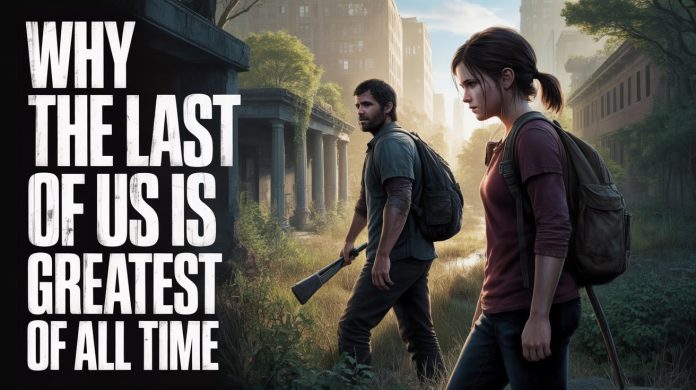Not just a game, but an experience
When people ask me what my favorite game is, I don’t hesitate: The Last of Us.
It wasn’t just a game I played. It was a game that lived inside me, the moment I put down the controller.
Released in 2013 by Naughty Dog, The Last of Us wasn’t just revolutionary because of its gameplay mechanics or its terrifying post-apocalyptic world. It was revolutionary because it told a story that felt real, human, and devastatingly intimate. It blurred the line between cinematic storytelling and interactive immersion in a way that few titles have ever come close to matching.
The opening scene that broke me.
I knew this was different within the first 15 minutes.
You start as Sarah, Joel’s daughter, who wakes up in the middle of the night as the pandemic begins. You see the chaos unfold from a child’s perspective — terrified, confused, clinging to her father’s hand as the world falls apart.
Then, just as you think you’re safe… she’s gone.
I remember having to pause the game and sitting there in silence. No music. No shots fired. Just the gut-wrenching feeling of watching a parent lose their child. It felt so real. And that was just the beginning.
Joel and Ellie: The Most Human Pairing in Gaming
The bond between Joel and Ellie is what makes this game a masterpiece.
It starts off cold—Joel, broken and closed off, sees Ellie as cargo. Ellie, sharp and sarcastic, maintains her guard. But over the course of hours of gameplay, watching them survive, fight, and heal together, something changes.
They don’t have to do with exposition. They happen in small moments:
Ellie reading Pence from a joke book.
Joel teaching her how to shoot.
A quiet conversation in the snow about loss and survival
When Joel calls his “little girl” — the same thing he used to call Sarah — I felt my heart break and heal at the same time.
A brutal, beautiful world
The game doesn’t romanticize the apocalypse. It shows its decay and ruin — both external and internal. You see what people become when survival is the only goal: hunters, cannibals, warriors.
But the most terrifying and gripping moments don’t come from the clickers or the infected. They see humans justifying the unthinkable.
When Joel makes the ultimate choice in the hospital, it divides the fans. Was he right? Was he selfish? It’s this moral ambiguity that takes The Last of Us into the realm of true art.
Sound, Silence, and Subtlety
Let’s talk about the music.
Gustavo Santaolalla’s sparse, aching guitar score carries the game’s emotional weight. It’s never overbearing. Sometimes it’s not even there. And that’s what makes the silence so loud — the emptiness, the tension, the sadness.
The Last of Us respects the player’s intelligence. It doesn’t over-explain. It lets you feel your way.
Why it still matters.
Even years later — and after a powerful sequel and a hit HBO adaptation — the original still stands tall.
It proved that video games can be more than just entertainment, but narrative experiences. It made you question morality, grief, survival, and love. It didn’t ask you to win. It asked you to understand.
In a world of endless remakes and shallow shooters, The Last of Us gave us something we rarely see: a game that made us stop. Think. Cry. And carry it with us, long after the credits rolled.
